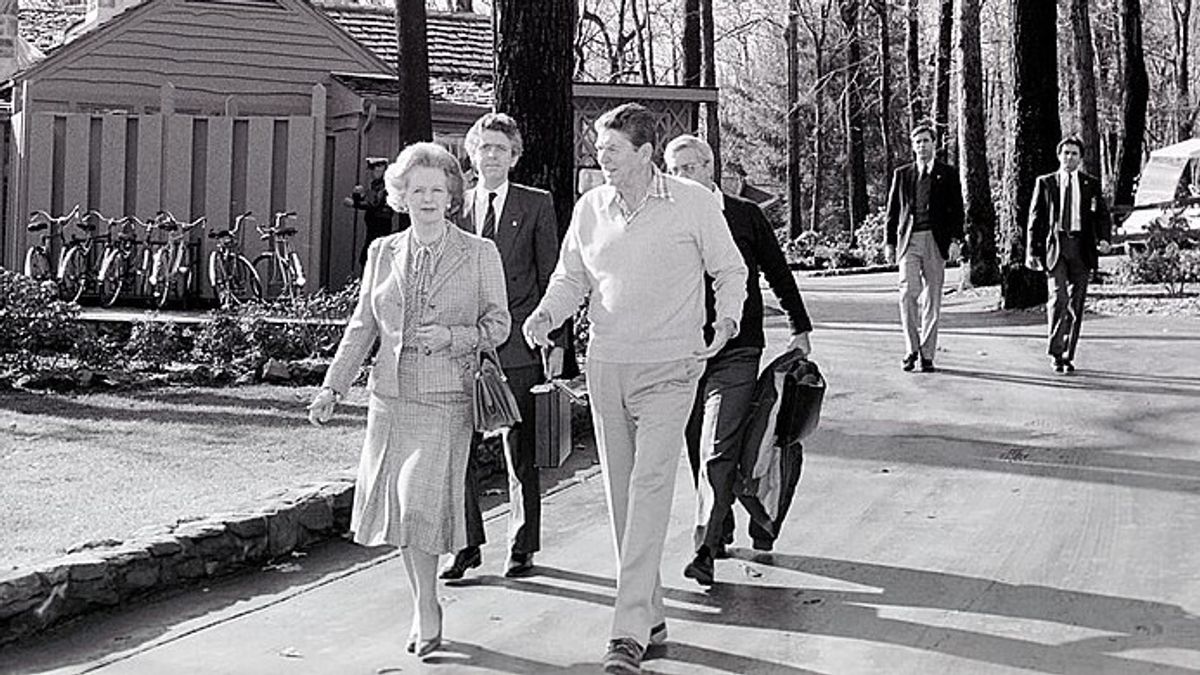JAKARTA History today, 39 years ago, January 29, 1985, the University of Oxford refused to give the honorary title (honorary causa) in the field of law to the British Prime Minister (PM), Margaret Thatcher. The decision was made because That decision did not take sides with the education sector.
He is considered to like to cut education funds. This action made the lecturer's life far from well-established. Previously, that was known as the British PM who likes to make savings.
Margaret Thatcher is a lucky British woman. The parent figure who is classified as a middleweight is behind it. She was able to access higher education. That was included in England's best campus, at Somerville, University of Oxford in 1943.
The Department of Chemicals is his choice. His education went smoothly. He was able to graduate in four years. This condition did not make him work only to be selfish. Instead of just focusing on chasing a salary, That actually spent a lot of time and his mind getting into the world of politics in 1948.
The Conservative Party is his political vehicle. A decision that goes against the current of his time. Because most British women devote themselves to being just a housewife. That broke it down.
He is proof that women are not just struggling with kitchen matters. However, women can take care of the lives of many people. The prestige became increasingly famous when That was transformed into the leader of the Conservative Party in 1975.
The leadership made him appear as a respected politician. He dared to oppose the Labor Party and all its interests. All because of the interests of the Labor Party, it is only a matter of raising wages that incidentally hinder progress.
Confrontation of the Labor Party continues when he succeeded in becoming British Prime Minister in 1979. He chose to carry out policies that were against the interests of the workers. Thatcherism, his name. This policy made Britain able to adopt the free market climate to the privatization of state companies. England is profitable, but the welfare of the people is the umpteenth number.
With that, he did succeed in generating national productivity. According to the OECD survey, England, which was ranked 12th in manufacturing, rose to 5th in the 1979-1994 period. Even entering 2007, productivity per head in all economies is equivalent to Germany. That therapy that hit was proven to be effective.
"But the breakthrough also continues politics as a social antagonist. The gap between the poor and the rich is widening. In Europe, England is the country with the worst social-economic inequality. It is no longer the Sick from Europe, but the number of unemployed has increased from about 4 percent to above 9 percent. People who live below the poverty line have increased to above 22 percent, "explained Goenawan Mohamad in his writing in Tempo magazine entitledThatcher 1925-2013 (2013).
Thatcher's leadership also invites praise. His supporters try to propose Thatcher's name as the recipient of the honorary title in the field of law from the University of Oxford, which incidentally has an alma mater.
However, that desire has had serious opposition. The voices related to that are not worthy of accepting the title of honor booming everywhere. The narrative developed because during his rule that he actually made a lot of massive cuts to education funds.
As a result, the University of Oxford voted from among them. As a result, many were monolactic that they were awarded the title of honor in the field of law. Oxford took a stand. They officially refused to give that honorary title on January 29, 1985.
SEE ALSO:
The lecturer's salary, never caught his attention. The vacant teaching position was left unfilled. The tutorial system, which was once the foundation of Oxford's reputation, is now in danger of being out of date. That's very obsessed with the budget."
His controversial term of office was marked by his relentless desire to cut government spending and expand free market principles to every British sector. British people, like it or not, have to learn to be competitive. And universities, he explained, would not get special dispensations. Like everyone in the new society, they have to pay for their own lives, "said James Atlas in The New York Times newspaper called Oxford Versus Thatcher's England (1988).
The English, Chinese, Japanese, Arabic, and French versions are automatically generated by the AI. So there may still be inaccuracies in translating, please always see Indonesian as our main language. (system supported by DigitalSiber.id)

















